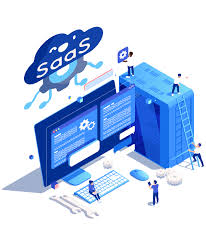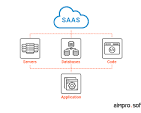Revolutionizing Technology: The Impact of Edge AI
Understanding Edge AI: The Future of Artificial Intelligence
Edge AI is rapidly transforming the landscape of artificial intelligence by bringing computation and data storage closer to the devices where data is generated. Unlike traditional AI systems that rely heavily on cloud computing, edge AI processes data locally on hardware devices. This approach offers numerous advantages, including reduced latency, enhanced privacy, and improved efficiency.
What is Edge AI?
Edge AI refers to the deployment of artificial intelligence algorithms directly on devices such as smartphones, IoT gadgets, and autonomous vehicles. This technology allows these devices to process data in real-time without needing to send information back and forth to centralized cloud servers. By minimizing reliance on cloud infrastructure, edge AI reduces bandwidth usage and latency while enhancing data security.
The Advantages of Edge AI
- Reduced Latency: By processing data locally, edge AI eliminates the delay associated with sending information to remote servers for analysis. This is crucial for applications requiring immediate responses, such as autonomous driving or industrial automation.
- Improved Privacy: Since data is processed on-device, sensitive information doesn’t need to be transmitted over networks. This significantly reduces the risk of data breaches and enhances user privacy.
- Lower Bandwidth Usage: With less need for constant communication with cloud servers, edge AI reduces network congestion and bandwidth costs.
- Enhanced Reliability: Devices equipped with edge AI can continue functioning even when disconnected from the internet or experiencing connectivity issues.
Applications of Edge AI
The potential applications for edge AI are vast and varied across different industries:
- Healthcare: Wearable devices equipped with edge AI can monitor vital signs in real-time and alert users or healthcare providers about potential health issues without needing a constant internet connection.
- Agriculture: Smart farming equipment can analyze soil conditions and crop health on-site, enabling more efficient resource management and better yields.
- Manufacturing: Industrial machines can use edge AI to monitor their own performance and predict maintenance needs before failures occur.
- Retail: In-store cameras equipped with edge computing capabilities can analyze customer behavior patterns in real-time to enhance shopping experiences.
The Future of Edge AI
The rise of edge computing represents a significant shift in how artificial intelligence will be deployed in the future. As technology advances, it is expected that more powerful processors will enable even more complex algorithms to run locally on devices. This will further expand the capabilities and applications of edge AI across various sectors.
The integration of 5G technology will also play a crucial role in accelerating the adoption of edge AI by providing faster connectivity where needed while still allowing local processing power when necessary. Together, these advancements promise a future where intelligent systems are seamlessly integrated into everyday life while maintaining high standards for privacy and efficiency.
The journey towards widespread adoption may present challenges such as ensuring interoperability between different devices or managing power consumption effectively; however, the benefits offered by this approach make it an exciting frontier worth exploring further within artificial intelligence research & development efforts worldwide!
Exploring Edge AI: Key Questions and Insights on Its Technologies and Advantages
- What is Palantir edge AI?
- What is the difference between edge AI and AI?
- What is edge machine learning?
- What is Intel edge AI?
- What is the edge AI?
- What is the advantage of edge AI?
- What is the difference between edge AI and normal AI?
- What is Apple edge AI?
What is Palantir edge AI?
Palantir Edge AI refers to the integration of Palantir’s data analytics platform with edge computing capabilities to enable real-time data processing and decision-making at the source of data generation. By leveraging edge AI, Palantir aims to enhance its ability to provide actionable insights without relying solely on centralized cloud infrastructure. This approach allows for faster analysis and response times, improved data privacy, and reduced bandwidth usage. Palantir Edge AI is particularly beneficial in scenarios where immediate insights are crucial, such as in defense operations, industrial monitoring, and IoT applications. By bringing advanced analytics closer to the point of data collection, Palantir Edge AI empowers organizations to make informed decisions more efficiently and effectively.
What is the difference between edge AI and AI?
Edge AI and traditional AI differ primarily in where data processing occurs. Traditional AI typically relies on cloud computing, where data is sent to remote servers for processing and analysis. This approach can lead to increased latency and potential privacy concerns due to the transmission of sensitive information over networks. In contrast, edge AI processes data locally on devices such as smartphones, IoT devices, or autonomous vehicles. This local processing reduces latency by eliminating the need to send data back and forth to the cloud, enhances privacy by keeping sensitive information on-device, and decreases bandwidth usage. While both edge AI and traditional AI leverage advanced algorithms to make intelligent decisions, edge AI offers a more efficient and secure solution for real-time applications.
What is edge machine learning?
Edge machine learning refers to the implementation of machine learning algorithms directly on edge devices, such as smartphones, IoT devices, and autonomous vehicles, rather than relying on centralized cloud servers for data processing. This approach allows these devices to analyze and interpret data locally, enabling real-time decision-making and reducing the need for constant data transmission to and from the cloud. By processing data at the source, edge machine learning enhances privacy by keeping sensitive information on-device and minimizes latency, which is crucial for applications that require immediate responses. Additionally, it reduces bandwidth usage and increases the reliability of systems by allowing them to function independently of network connectivity. As a result, edge machine learning is becoming increasingly important in various fields, including healthcare, manufacturing, and smart cities.
What is Intel edge AI?
Intel Edge AI refers to Intel’s suite of technologies and solutions designed to enable artificial intelligence processing at the edge of networks, closer to where data is generated. By leveraging Intel’s powerful processors, accelerators, and software tools, edge AI allows for real-time data analysis and decision-making directly on devices such as sensors, cameras, and industrial equipment. This reduces the need for constant data transmission to centralized cloud servers, thereby minimizing latency and enhancing privacy. Intel provides a range of products tailored for different edge computing needs, including CPUs like the Intel Xeon processors, VPUs such as the Intel Movidius Myriad chips, and software frameworks that optimize AI workloads on edge devices. These solutions are widely used across various industries, from smart cities and healthcare to manufacturing and retail, helping businesses harness the power of AI with efficiency and scalability.
What is the edge AI?
Edge AI refers to the deployment of artificial intelligence algorithms directly on local devices, such as smartphones, IoT devices, and autonomous vehicles, rather than relying solely on centralized cloud servers. This approach allows data processing to occur closer to the source of data generation, resulting in reduced latency and improved real-time decision-making capabilities. By minimizing the need for constant communication with remote servers, edge AI enhances privacy and security by keeping sensitive data on-device. Additionally, it reduces bandwidth usage and increases the reliability of AI applications by enabling them to function even without a stable internet connection. Edge AI is increasingly being adopted across various industries, from healthcare to manufacturing, as it offers significant advantages in efficiency and responsiveness.
What is the advantage of edge AI?
The advantage of edge AI lies in its ability to process data locally on devices rather than relying solely on cloud-based servers. This localized processing significantly reduces latency, allowing for real-time decision-making, which is crucial for applications like autonomous vehicles and industrial automation. Additionally, edge AI enhances data privacy by keeping sensitive information on the device itself, minimizing the risk of data breaches during transmission. It also reduces bandwidth usage and network congestion since less data needs to be sent to and from the cloud. Furthermore, edge AI improves system reliability by enabling devices to function independently of internet connectivity, ensuring consistent performance even in areas with limited network access.
What is the difference between edge AI and normal AI?
Edge AI and traditional AI primarily differ in where data processing occurs. In traditional AI, data is typically sent to centralized cloud servers for processing, which can introduce latency and require significant bandwidth. This approach relies heavily on constant internet connectivity and can pose privacy concerns since sensitive data needs to be transmitted over networks. In contrast, edge AI processes data locally on the device where it’s generated, such as smartphones or IoT devices. This local processing reduces latency, enhances privacy by keeping data on the device, and decreases reliance on network connectivity. As a result, edge AI is particularly beneficial for applications requiring real-time decision-making and improved data security.
What is Apple edge AI?
Apple Edge AI refers to the implementation of artificial intelligence technologies directly on Apple devices, such as iPhones, iPads, and Macs, rather than relying solely on cloud-based processing. By leveraging powerful on-device hardware like the Neural Engine in Apple’s A-series and M-series chips, Apple enables real-time data processing and decision-making without the need for constant internet connectivity. This approach enhances user privacy by keeping sensitive data localized on the device and reduces latency for AI-driven tasks such as voice recognition with Siri, facial recognition with Face ID, and image processing in the Photos app. Apple’s commitment to edge AI reflects its focus on delivering seamless user experiences while maintaining high standards of security and efficiency.










